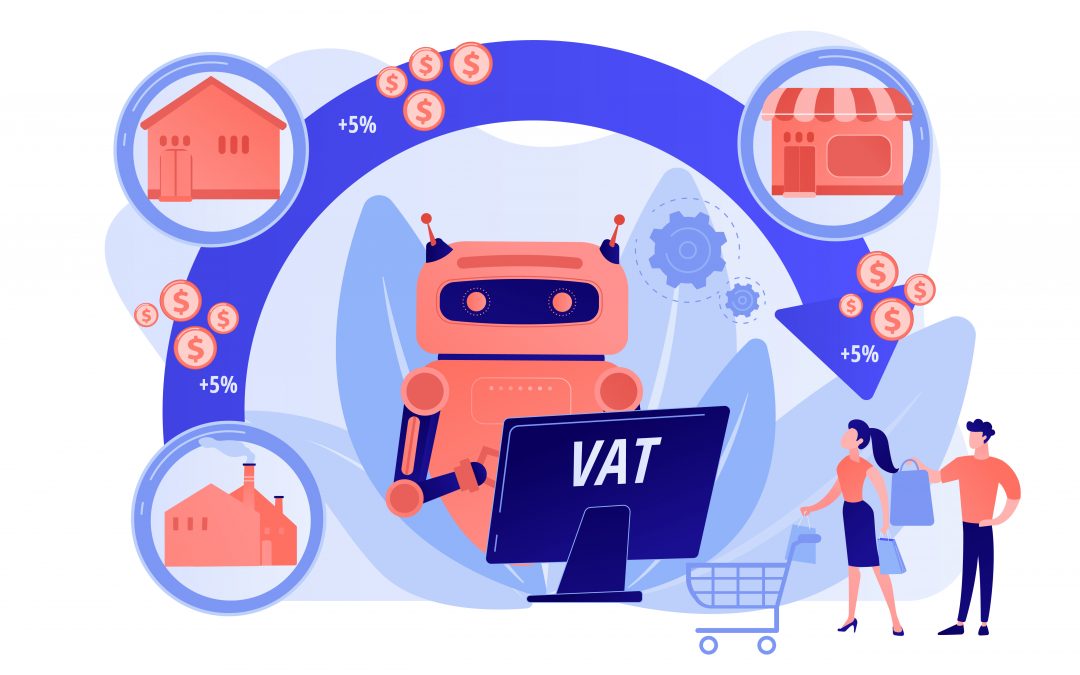Accounting is necessary for a business’s stakeholders to determine its performance over time and make sound decisions informed by accurate records. All business entities must record, summarize, and analyze their business transactions to ascertain their profits, losses, credits, and debts in a financial year.
Although accounting is essential to running a business, it’s a laborious, tedious, and expensive activity. So how can businesses save time and costs to stay ahead of the curve?
Through Artificial Intelligence (AI).
AI automates repetitive and time-consuming tasks for accountants and is expected to witness a CAGR of 30% between 2020-2027 in the accounting industry.
In this article, we’ll discuss the impact of AI on accounting, but first, let’s understand what AI is.
What is AI?
AI is a branch of computer science and refers to machines that can learn and mimic human intelligence to execute complex tasks.
It’s become essential for businesses because it:
- is affordable,
- can be easily adopted by enterprises–of all sizes and across industries,
- helps organizations store and analyze huge volumes of data,
- automates mundane tasks,
- increases productivity,
- enhances transparency, and
- minimizes human errors.
Currently, over 91% of companies are investing in AI initiatives, and its market size is estimated to reach US$ 641.30 billion by 2028.
AI is the future of businesses and is all set to reconstruct the business landscape. Its impact is driving change across all sectors, including the accounting industry.
AI’s impact on the accounting industry
The accounting industry is embracing AI-based solutions briskly due to added transparency and efficiency. Some impacts of AI on the accounting industry are as follows:
1. Automation of routine tasks
AI’s biggest impact on the accounting industry is the automation of mundane tasks. AI can easily and effectively take over grueling manual tasks, such as payroll, auditing, maintaining records, inventory control, account reconciliation, and accounts payable and receivable.
It can also help reduce human errors, such as duplication or omission, enhancing the accuracy of financial statements. Moreover, Robotic Process Automation (RPA) AI integration can significantly reduce the time taken to audit contracts and review financial statements.
As accountants can delegate their non-value-adding tasks to AI, this gives them room to stretch their legs and focus on other services, such as cost control, capital optimization, and process improvement, to improve business processes that positively impact revenue.
2. Addition of invisible accounting
AI can efficiently gather, compile, sort, and analyze massive amounts of data to provide actionable insights, improve workflows, and optimize data points.
It silently drives the accounting operations behind the scenes for enterprises as it can be trained to recognize isolated activities and flag fraudulent behaviors to reduce financial fraud.
AI can also detect and monitor links between potential risks and associated expenses to further protect an enterprise. The best part? This happens in real-time so accountants and managers can have a finger on their business’s financial pulse.
3. Transformation of job roles
AI not only transforms the accounting operations of businesses but also assists them in understanding the risks associated with their audit processes. So businesses need qualified individuals to infer the procured data and have expertise in accounting and finance.
This, in turn, is transforming the people they hire, the skill sets they hire for, and the training they offer to their existing employees. The emphasis on data interpretation and the need to acquire hard skills, such as data analytics, is increasing.
As a result, potential and existing accountants and auditors will have to let go of the traditional practices, upskill themselves, and brush off their analytical and critical reasoning skills to take on the role of trusted financial advisors.
AI and automation will demolish the need for specific accounting job roles, but they’ll also be the catalyst in creating 58 million jobs. It’ll also transform job roles; out of the jobs transformed by AI, almost two-thirds would be highly-skilled.
4. Ease in transaction coding
In accounting, transaction codes are used to record and monitor financial activities. For instance, adding transaction codes for all items on a bank statement is necessary. This code helps identify the type of transaction and the detailed information required to reconcile the entry.
AI makes classifying transactions as per a determined coding system easier. To pre-code each transaction, it can fill in the custom fields, like class, detailed information, and user-identified code.
Here, all an accountant has to do is overlook the entries and approve or correct them instead of manually entering each detail.
5. Better compliance
AI-enabled systems aid accountants in taking care of auditing and compliance requirements as it continuously checks and scrutinizes internal documents against laws and rules to flag the audit that doesn’t match the set standards.
This safeguards an enterprise against hefty legal penalties and potential scams that humans might overlook.
AI is the future of accounting
AI is fueling the growth of the accounting industry. It can save time, minimize errors, work round-the-clock, and streamline a plethora of financial activities. If you don’t employ one already, integrating AI-backed software can work wonders for your business.
ASSIST is a document management software to help you keep your financial records in order. This software allows business owners and bookkeepers to easily manage, capture, and export data from receipts, invoices, and other financial statements for seamless extraction and reporting. Say goodbye to manual filing and data entry, and try out ASSIST today.

Recent Comments